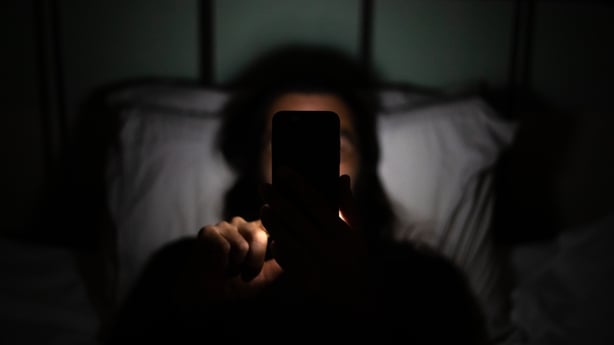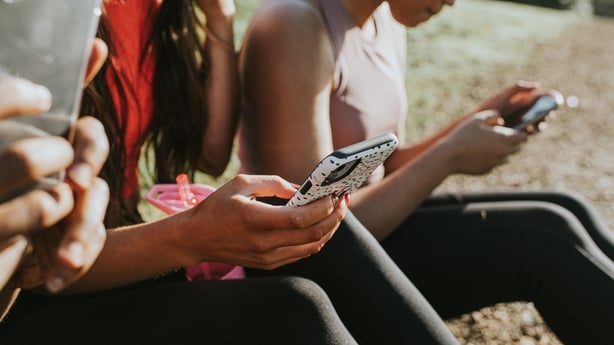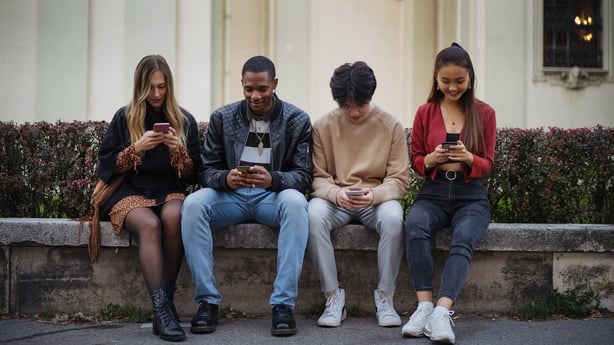Niamh Delmar is a Chartered Registered Counselling Psychologist and provides Psychological Support Workshops to work environments. Here she writes about the mental health effects of cancel culture.
For the most part, cancel culture is a by-product of social media, and it certainly seems to be on the rise. While it has played a part in highlighting important issues and transforming various aspects of society, there is also a flip side.
According to the Pew Research Centre, 58% of U.S. adults say that, in general, calling out others on social media is more likely to hold people accountable, while 38% say it is more likely to punish people who don't deserve it. It should be noted that these beliefs differ sharply depending on the person's political views.

In Psychological terms, 'groupthink' refers to the occurrence of individuals agreeing with a consensus and ignoring ethical considerations. An 'us v them' mentality leads to unhealthy attitudes whereby the group identity is prioritised at the expense of factual information.
In neurological terms, instant dismissal of someone means the brain is not given the opportunity to engage in a more complex way of thinking. This lack of critical thinking means the exploration of facts, intent and other mitigating factors is denied which often leads to the real issues falling to the wayside.
Threats, shaming and blaming, demanding resignations or expulsions are some of the hallmarks of cancelling an organisation or an individual. Cancellers usually have strongly held beliefs and opinions that they believe are the only way and the right way.
When interpretations are seen in black and white, psychologists refer to this as a cognitive distortion. Intense emotions, such as anger, disgust or upset lead to communication intended to harm. Emotional regulation is limited and it is easier to insult from behind a social media handle than face to face.
In certain cases, there seems to be no legal or investigative process, and little or no room for defence. Judgment takes place in the online courtroom.

Cancel culture can escalate into bullying leading to social isolation. It is a sudden shock to the person and a dismantling of an identity held. Intense feelings of shame can lower self-esteem. A combination of psychological, social and biological factors influence to what extent an individual can endure before mentally crumbling.
If it is ongoing, research has linked it to depression, anxiety and insomnia. When a deliberate attack is evident, based on false claims or taken out of context, it has been associated with PTSD or suicidal ideation.
Studies show that adolescents are even more susceptible as they are highly sensitive to the opinion of peers and the regions of the brain associated with socialising are still developing.
Why do so some people jump on the bandwagon so readily and eagerly? It is a knee-jerk form of anger. While a certain amount of social media activism and collective outrage is warranted, some has been found to be impulsive and unfair.
To minimise the risk of being sucked into groupthink that may not align with your true perspective, full information has to be assimilated and time taken to calm emotional and impulsive reactions.

Awareness of ‘cognitive biases’ can also reduce being pulled into groupthink. These are errors in thought processing that people make in interpreting information. Adopting the role of ‘devil’s advocate’ can also broaden others’ views - although it's a good reminder to approach debate in a respectful manner.
The cancel culture phenomenon scares people out of sharing opinions or engaging in free speech. Digital public shaming can make cancellers feel grandiose and boosted by online support. Calling others out aggressively is often a form of virtue signalling (public expression of an opinion to demonstrate good character) or seeking approval and popularity.
In the digital world, being reactive is seen more and more as brave and is admired. Sometimes, ulterior motives or agendas are at play. The ‘in-group’ sense of togetherness is socially rewarding for them with the ‘buzz’ of being reactive.
If you are a keyboard warrior, assess what is underneath the urge to engage in this. It could be a need to fit in, a boost to your self-esteem or difficulty with emotional regulation. Pause, assess and reflect before posting. Find ways to instigate real change and cultivate empathy and curiosity.
Taking a digital detox and enjoying healthy activities can have a more positive impact on well-being. If you are being piled on, apologise if it’s relevant and exit the digital world for a while and seek support.
Education needs to include positive digital citizenship to pause before posting and engage in real world interactions and activities.

It has to be acknowledged that social media plays an important role in holding people accountable and can be a platform for justice, advocacy and change. However, if all the facts are not presented, or it becomes too emotive or impulsive, hatred can be incited.
Calling bad behaviour out or holding someone accountable in a healthy way involves gathering facts, communicating clearly what is not acceptable and hearing the response. The individual being 'cancelled' has to explain fully and take responsibility for their actions.
While public opinion can be of benefit to society by exposing injustices, inequalities and inappropriate behaviours, a mob mentality is incendiary, ill-informed and dangerous.
There is a difference between social discourse and abuse.
If you have been affected by issues raised in this story, please visit: www.rte.ie/helplines.
The views expressed here are those of the author and do not represent or reflect the views of RTÉ


